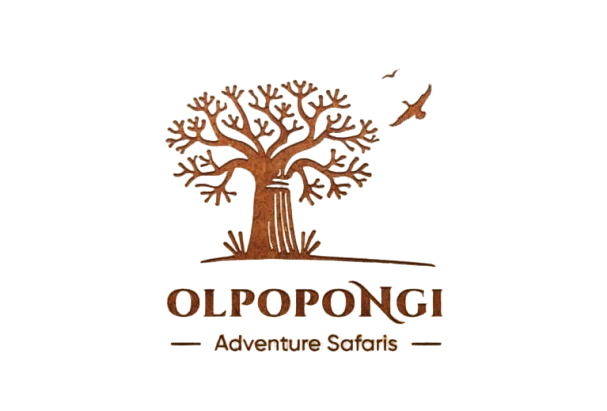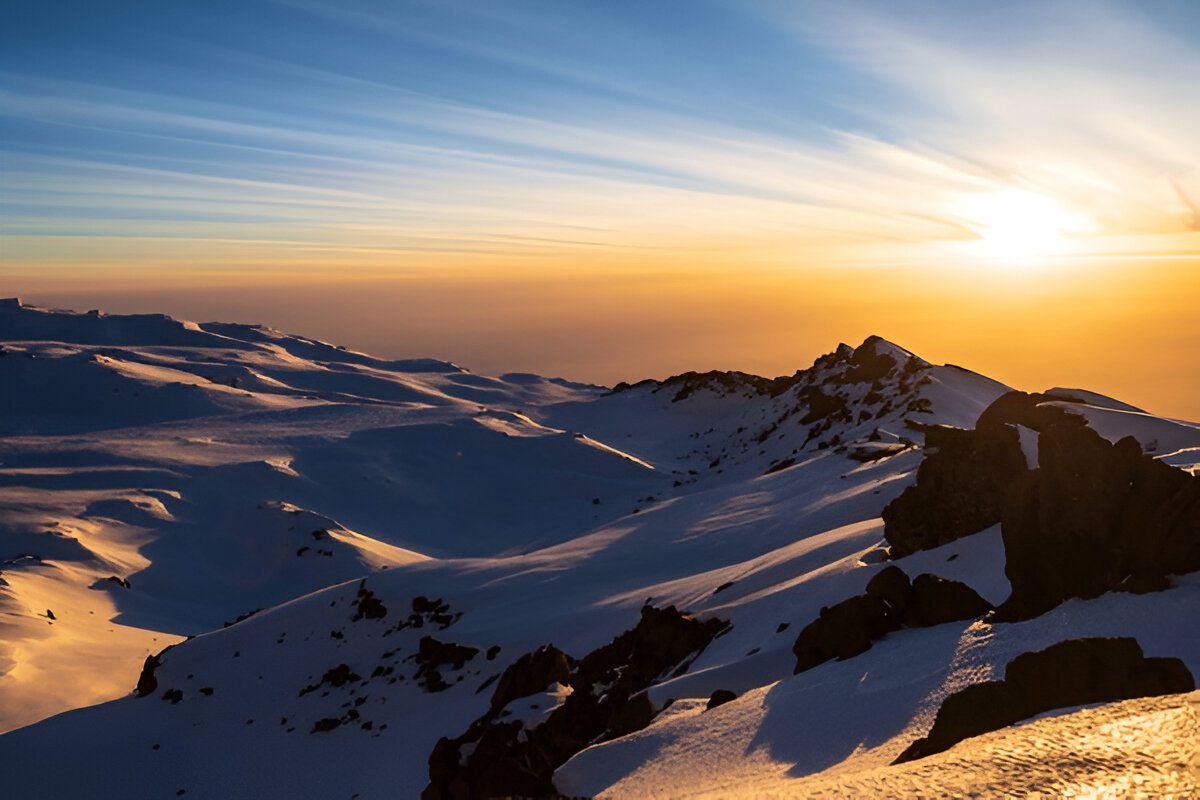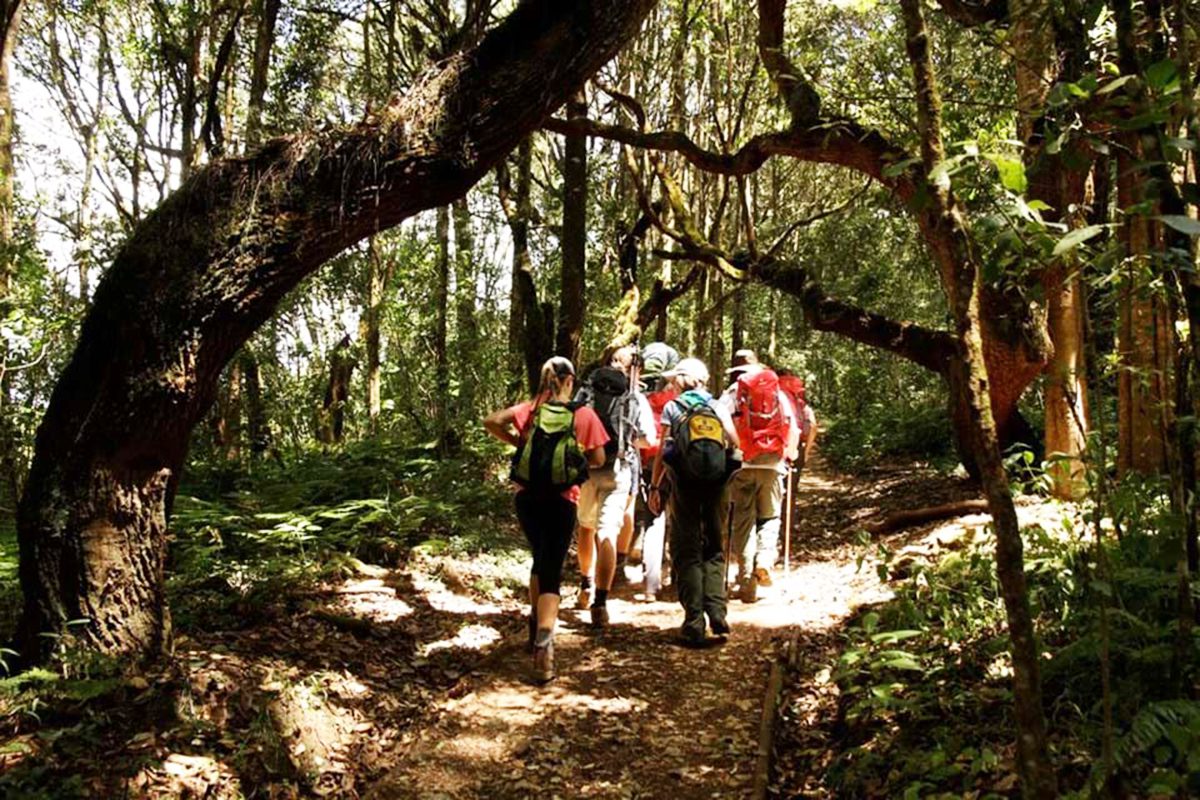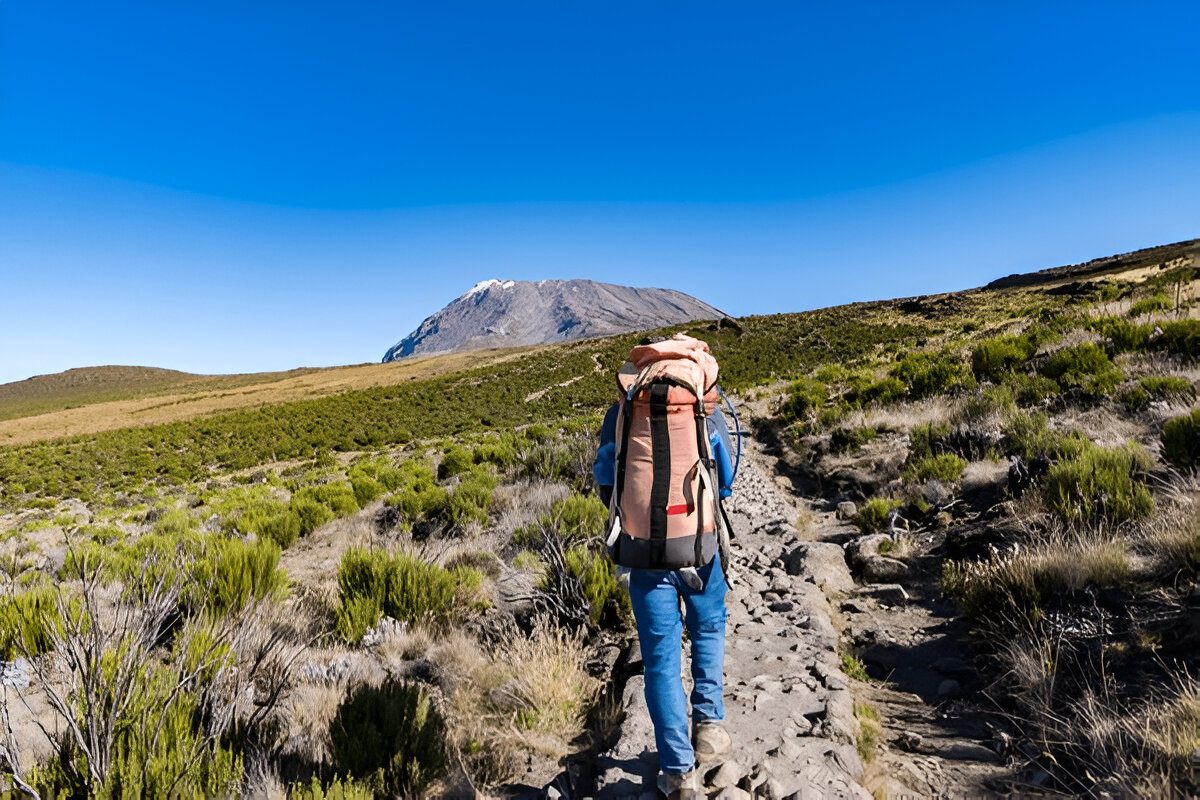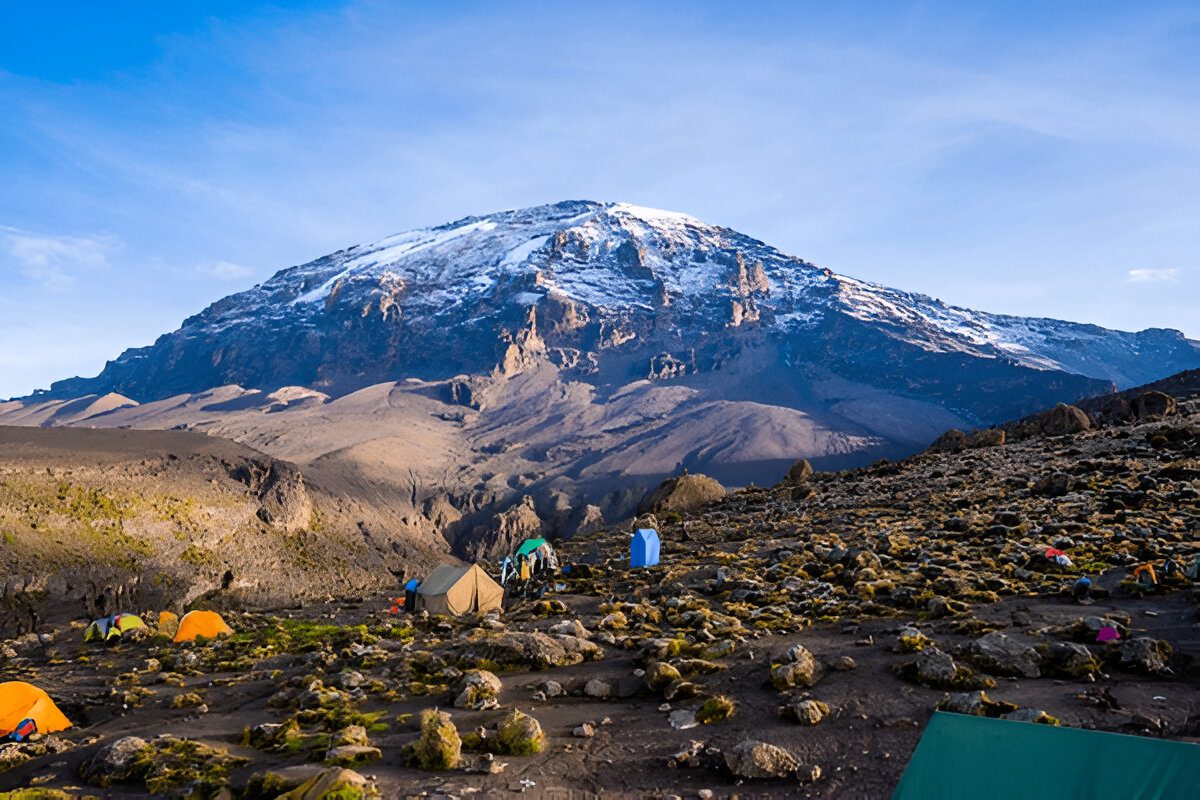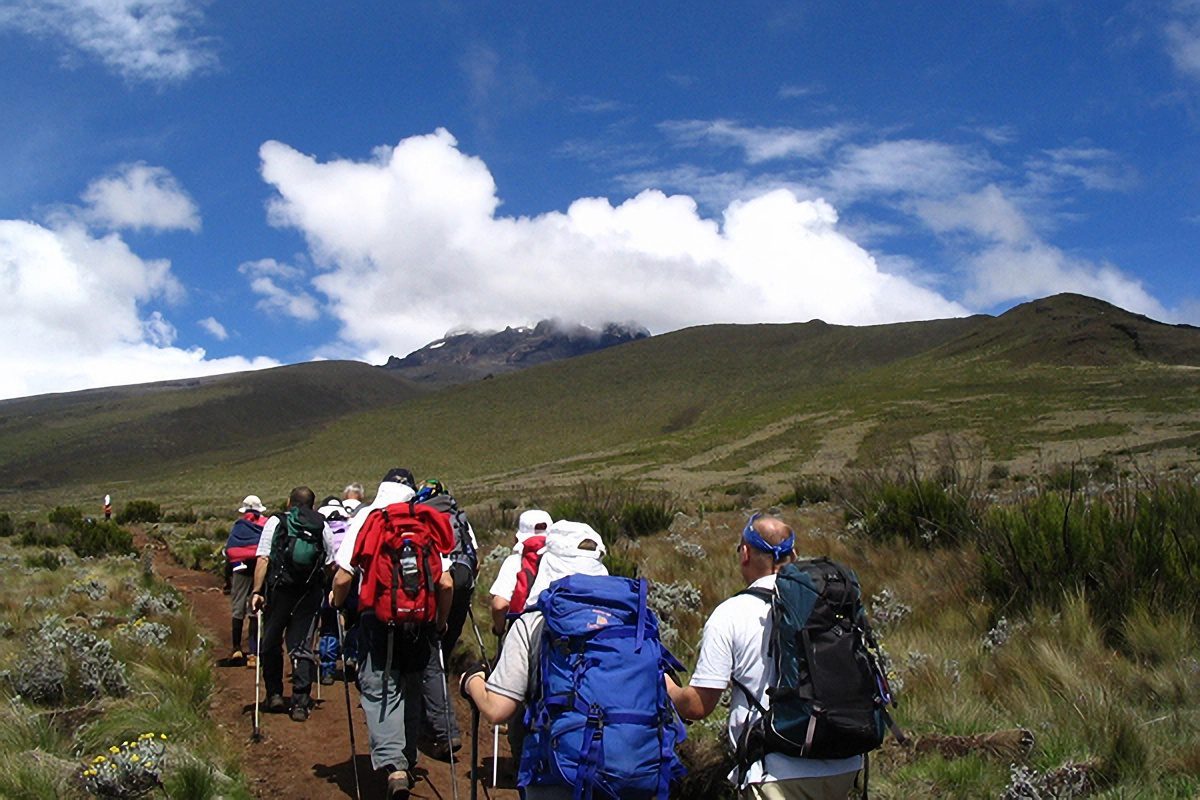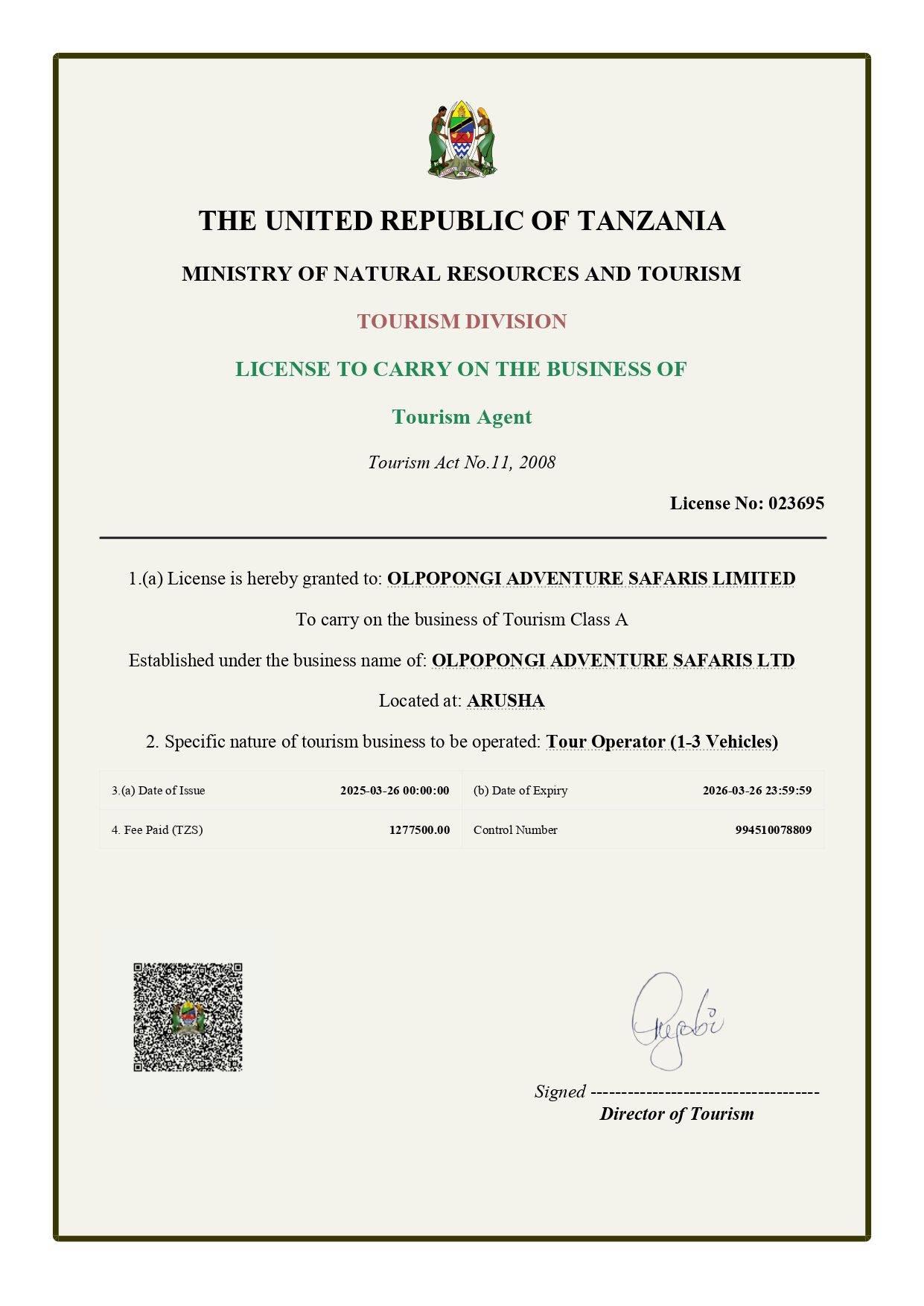Reach the Roof of Africa:
Unforgettable Mount Kilimanjaro Climbs
Mount Kilimanjaro Adventures.
Conquer Africa’s Highest Peak
Picture yourself standing on top of Africa’s highest peak, gazing over vast savannas and snow-capped ridges at 5,895 meters. Mount Kilimanjaro, Tanzania’s iconic dormant volcano, is more than a climb—it’s a journey of self-discovery, resilience, and awe-inspiring beauty. With its diverse ecosystems, from lush rainforests to alpine deserts, Kilimanjaro beckons adventurers, honeymooners seeking unique experiences, and professionals craving a transformative escape. Conquer the summit and create memories that echo forever.
Reach New Heights Mount Kilimanjaro with Treks.
- Iconic Challenge: Summit Africa’s tallest mountain, a bucket-list achievement for adventurers worldwide.
- Stunning Diversity: Traverse five ecological zones, from tropical forests to glacial peaks.
- No Technical Skills Needed: Accessible to fit hikers, with guided routes for all experience levels.
- Cultural Immersion: Connect with Tanzania’s Chagga communities and their rich heritage.
- Lifelong Memories: Experience sunrise at Uhuru Peak, a moment of triumph and serenity.
Top Climbing Routes
Marangu Route (Coca-Cola Route)
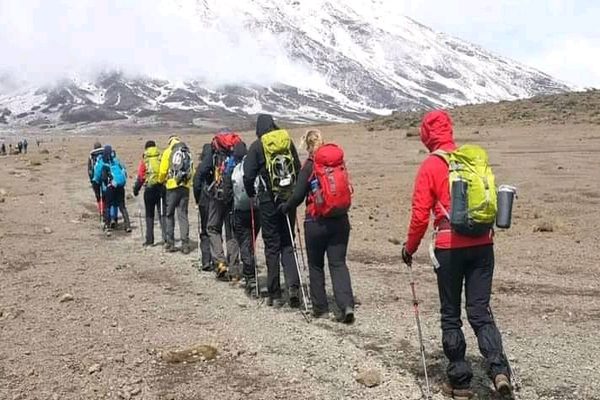
Duration: 5-6 days
Difficulty: Moderate
Popularity: One of the most popular routes, especially for beginners.
Accommodation: The only route with huts for overnight stays, providing a more comfortable experience.
Scenery: Varied landscapes, from rainforests to alpine meadows, with views of the surrounding savannah and the famous Kibo peak.
Experience & Hardship:
This route is considered the easiest because it is a gradual ascent with a relatively short summit day. However, climbers face the challenge of altitude sickness due to the rapid ascent, especially because it doesn’t follow a “climb high, sleep low” approach, which is essential for acclimatization. The last push to the summit, beginning around midnight, is physically demanding and mentally taxing due to the cold and exhaustion.
Machame Route (Whiskey Route)
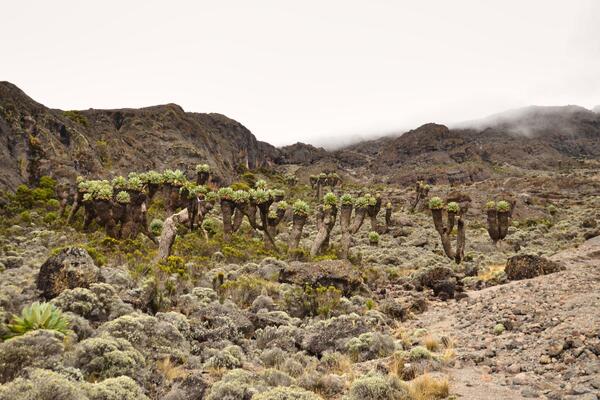
Duration: 6-7 days
Difficulty: Challenging
Popularity: One of the most scenic and popular routes.
Accommodation: Campsites along the way, providing a more rustic experience compared to Marangu.
Scenery: A diverse range of ecosystems, including dense rainforests, moorlands, and alpine deserts. Climbers get spectacular views of the Kilimanjaro massif and the surrounding valleys.
Experience & Hardship:
Known for its dramatic landscapes, Machame offers a more rugged and diverse experience. The route is steeper and more physically demanding than Marangu, especially the night hike to the summit, which can be exhausting. The route’s success rate is higher than the Marangu route due to its longer acclimatization period, but it’s still a challenging climb. The steepness and the overnight camping make it a test of endurance and mental strength.
Lemosho Route
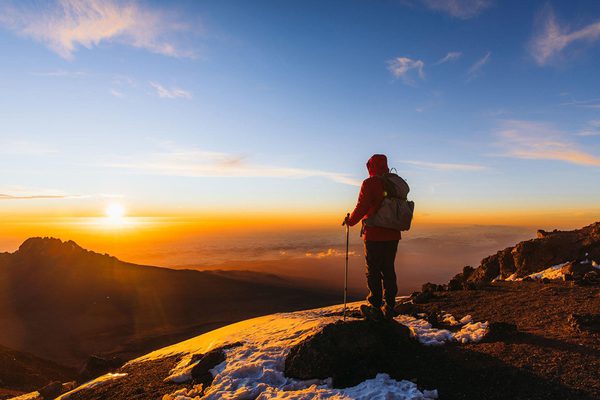
Duration: 7-8 days
Difficulty: Moderate to difficult
Popularity: Less crowded and known for its beautiful, remote landscapes.
Accommodation: Campsites along the way.
Scenery: Starts in the lush rainforest, then transitions into moorlands and alpine desert. It offers stunning views of the western side of Kilimanjaro, with panoramic vistas and a more tranquil, isolated environment.
Experience & Hardship:
Lemosho is often regarded as one of the most scenic and beautiful routes due to its remote location and excellent acclimatization schedule. The route offers a steady ascent with varying landscapes. However, the climb is still strenuous, and the descent is particularly hard on the knees. The weather can also be unpredictable, with heavy rain or fog that can reduce visibility. Because it is less trafficked, climbers can enjoy more solitude but should be prepared for a more rugged experience.
Rongai Route
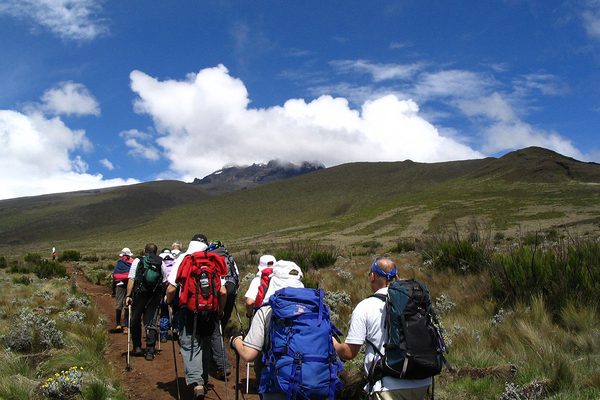
Duration: 6-7 days
Difficulty: Moderate
Popularity: Less crowded, and the only route that approaches Kilimanjaro from the northern side.
Accommodation: Camping, with well-maintained campsites.
Scenery: This route passes through forest, moorland, and alpine desert, offering fewer views of the mountain itself but more of the surrounding plains and wildlife, especially elephants.
Experience & Hardship:
The Rongai route is considered less challenging than Machame, with a more gradual ascent and fewer crowds. It offers a unique experience as it begins on the quieter northern side of the mountain. The final summit night is challenging due to the steep climb, but the route’s ascent is more gradual, making it a good option for acclimatization. However, climbers may find the descent more difficult, as it involves long and steep downhill sections.
Umbwe Route

Duration: 6-7 days
Difficulty: Very difficult
Popularity: One of the least popular and more challenging routes.
Accommodation: Camping along the route.
Scenery: Lush rainforest, alpine meadows, and the dramatic Barranco Wall. It offers some of the most intense landscapes, including sharp ridgelines and steep ascents.
Experience & Hardship:
Umbwe is the most challenging and steepest route on Kilimanjaro. It is not recommended for beginners, as the quick ascent combined with a lack of gradual acclimatization increases the likelihood of altitude sickness. However, for seasoned climbers, it offers a challenging and adventurous experience. The trail is physically demanding, and the final push to the summit is grueling. The landscape is remote and rugged, offering a unique sense of isolation.
Northern Circuit

- Duration: 8-9 days
Difficulty: Moderate
Popularity: Least crowded, offering a remote and peaceful experience.
Accommodation: Campsites along the way.
Scenery: The Northern Circuit is known for its remote beauty and offers incredible views of both the northern and western sides of the mountain, including expansive views of the surrounding savannah.
Activities & Experiences
- Summit Climb: Experience the thrill of reaching Uhuru Peak, watching the sunrise over Africa’s vast plains.
- Guided Trekking: Navigate diverse terrains with expert guides who share insights on Kilimanjaro’s ecology and history.
- Wildlife Spotting: Encounter unique fauna like colobus monkeys and birds in the rainforest zones.
- Cultural Visits: Meet Chagga communities near Moshi, learning about their traditions and coffee farming.
- Photography: Capture stunning landscapes, from glacial peaks to starry night skies, perfect for enthusiasts.
- Acclimatization Hikes: Take short walks at higher altitudes to prepare your body, with guides ensuring safety.
- Stargazing: Enjoy clear, unpolluted skies at high-altitude camps, a magical experience for romantics and adventurers.
About Mount Kilimanjaro
Best Time to Climb
Kilimanjaro is climbable year-round, but the dry seasons (January–March and June–October) offer clear skies and stable weather. January–February is warmer, while September–October is less crowded. April–May and November bring rain, but quieter trails suit seasoned trekkers.
Getting There & Transfers
Fly into Kilimanjaro International Airport (JRO) from hubs like London, Frankfurt, Paris, or New York via connections in Nairobi, Doha, or Amsterdam. We provide seamless transfers to Moshi or Arusha, ensuring a smooth start to your climbing adventure.
Difficulty & Fitness Level
Climbing Mount Kilimanjaro is non-technical — no ropes or climbing experience is needed — but it’s still a physically demanding high-altitude trek. You’ll be walking 5–8 hours a day for several days, often uphill, at high elevations where oxygen is thinner. Here’s what to consider:
Fitness Preparation: A solid training plan 2–3 months in advance is recommended, focusing on:
Endurance hiking (4–8 hours)
Stair climbing or hill walking with a weighted backpack
Cardiovascular workouts like running, swimming, or cycling
Strength training for legs and core
Mental Preparation: Mental stamina is just as important. Trekking through cold, fatigue, and thin air requires resilience.
Success Tips:
“Pole pole” (slowly, slowly in English) — the key to high-altitude trekking.
Stay hydrated and well-nourished.
Sleep well before your trek.
Packing List & Gear
Being properly equipped is essential for both comfort and survival on Kilimanjaro. Temperatures range from tropical at the base to arctic at the summit. Here’s what you’ll need:
Essential Clothing:
Base layers (moisture-wicking shirts and thermal underwear)
Insulating mid-layers (fleece or down jacket)
Waterproof and windproof outer layers (Gore-Tex or similar shell jacket & pants)
Warm hat and gloves (plus glove liners)
Sun hat and UV-blocking sunglasses
Hiking socks (wool or synthetic) and liner socks
Gear Checklist:
Daypack (30–40L) with hydration system
Duffle bag (carried by porters)
Sleeping bag rated to -10°C or lower
Trekking poles (highly recommended)
Headlamp with extra batteries
Reusable water bottles or hydration bladder
Personal first-aid kit and toiletries
Optional but Useful:
Gaiters, wet wipes, power bank, lip balm, sunscreen (SPF 50+)
Gear Rental:
If you don’t own all this equipment, we offer reliable rental gear for boots, sleeping bags, down jackets, poles, and more.Altitude Sickness & Safety
Altitude is the #1 challenge on Kilimanjaro. The higher you go, the lower the oxygen levels. Everyone, regardless of age or fitness, is susceptible. Our approach prioritizes your health and safety.
Altitude Illness Can Include:
Headaches, nausea, loss of appetite, shortness of breath
In severe cases: High Altitude Pulmonary Edema (HAPE) or Cerebral Edema (HACE)
Our Safety Measures:
Daily Health Checks: Guides monitor your oxygen saturation and heart rate using a pulse oximeter.
Acclimatization Days: Some routes include extra days to help your body adjust.
Emergency Oxygen & Evacuation: Carried on every trek for safety.
“Climb High, Sleep Low” principle used where possible to encourage adaptation.
Tips to Prevent Altitude Sickness:
Walk slowly, even if you feel fine.
Drink at least 3–4 liters of water per day.
Avoid alcohol and smoking before and during the trek.
Consider talking to your doctor about Diamox (acetazolamide) for altitude adaptation.
Ready to Conquer Africa’s Highest Peak?
Ready for the adventure of a lifetime?
Your journey to the Roof of Africa starts here. Whether you're an adventurer seeking a once-in-a-lifetime challenge or a nature lover eager to stand above the clouds, Mount Kilimanjaro awaits.
🌍 Secure Your Spot Today!
Let our experienced guides, porters, and team ensure a safe, successful, and unforgettable summit.
✅ Choose your route
✅ Get expert support
✅ Make your dream climb a reality
